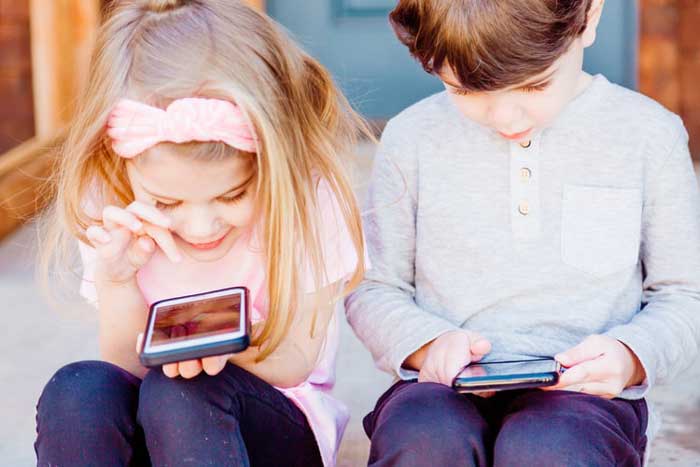Bullying Signs Every Parent Should Know
School has become strongly associated with bullying, what with 25% schoolchildren subjected to it, and, sadly, they are not disposed to report these instances to adults (only about 30% do). Yet there are definite telltale signs which can reveal the secret. These include mood changes, particular behavior patterns and even a different appearance. That’s how we can detect the sufferers.
What is grouped under the term
Bullying embraces both physical and mental forms, physical being pushing weaker kids on the playground or in the corridors, mental expressing itself in teasing and harassing. Bullying even extended itself to online raids. Yet schoolchildren are given to teasing, and some of it is quite innocuous, so that the dividing line between harmful and harmless conflicts cannot be drawn with surety. The current definition says that bullying is purposefully aggressive recurring behavior that makes the victim feel powerless.
What’s more, the aggression involved isn’t generated by angst, at the root of it there is contempt – an attempt to show that a certain kid is inferior, not worthy of respect, deserving to be persecuted. Those who bully can’t really understand that all people are different.
Unexpected bruises and scratches that are hard to explain
If your child happened to become a victim of bullying, he or she may start coming home from school bearing bruises, injuries or other signs of physical interference. That would be a dead giveaway. It may not be physical, neverhteless start with checking scratches or sores that they try to evade when questioned about. Also, bullying can leave traces on the clothes – tears, rips, badly crumpled areas that cannot be accounted for in the usual run of things. That can mean there was a bullying episode that left its mark.
You observe a marked change in using electronic gadgets
The Cyberbullying Research Center warns that there’s quite a lot of bullying going on online; more than 36% school kids report it. The usual reaction to cyberbullying is a noticeably different attitude to smartphones and the Internet: either your kid has their phone always shut down, or they keep checking the Internet excitedly. If your suspicions are aroused that the child is being got at via the Internet, explain to them the SCBT principle. SCBT stands for Stop (don’t respond), Copy, Block, and tell a trusted adult.
Grades get worse
Your child has been exemplary, and now he or she started to cut classes – it may be caused by bullying, which can also result in a serious drop in grades.
Sleeping habits undergo changes
Bullying often causes feelings of anxiety and mortification, and these begin to affect the overall mental condition, and sleeping patterns in particular. When you notice that the child’s sleep gets disturbed in any way (it may be sleeplessness, or, on the contrary, unwillingness to wake and get out of bed), you may begin to suspect bullying. Also can be indicative recurring nightmares or aggressive elements of dreams.
Eating habits undergo changes
A child that is exposed to bullying is likely to develop different eating habits. Again, it could result either in a loss of appetite or in compulsive eating. The latter is especially bad if the child is already overweight, and it is the reason behind the teasing. Such situations constitute a risk factor threatening to grow into a full-blown eating disorder. Students who regularly miss school lunches may do it because the cafeteria is the place where they are stalked by bullies.
Outbreaks of violent behavior
Bullied kids can be driven to work harm on themselves. When all of a sudden a child tries to cut himself, makes suicidal threats or attempts, or acts out in another self-destructive manner, you can ask yourself whether he or she is being bullied. Also, watch for remarks that express depression and dejection.
Unexplained loss of clothes or belongings
The child has become careless about clothing and some of their things get mislaid – it just might be the work of a bully. If a bully needs money, the victim may be pushed into petty stealing.
Distancing from other family members and habitual activities
Bullying leads to children distancing away from school pals and activities – but sometimes from their family as well. If victims failed to report nullying, they labor under the misapprehension that nobody is going to help them. According to the Journal of Child and Adolescent Counseling study, that is the reason why so few children (about 30%) open up to adults about instances of bullying.
Sick days off increase
When you notice that the child’s number of absences due to illness has grown noticeably, it certainly deserves your attention, and you may consider the possibility of bullying: staying away from school is the first attempt to get away from bullies! They might develop psychosomatic conditions and expose themselves to health risks because of this.
Increasing depression
Bullying does result in victims getting depressed and mortified, and this state will be evident in most situations. Apart from their reluctancy to turn up for school they may choose strange ways to get to school or get back home (trying to avoid bullies). As the condition aggravates, they can display anxiety even in situations unrelated to school life where a bully can be hardly expected to be around.
Friends disperse
What happened to your kid’s friends? They were there only last month, with regular invitations and playdates, but now the child shows distinct preference to spend time on their own. What if it is bullying that separated them from their friends?
Or maybe the reason lies somewhere else?
Yet you need to bear in mind that those behavioral shifts may be caused by other reasons apart from bullying. Students can have educational worries, or it may be a case of substance abuse; all these will require a different approach.
Any way, if your suspicions of bullying grow strong – and your child clams up and refuses to discuss the problem – look around for somebody you can entrust your child to open up to. Sometimes it is easier for the child to open up to adults who are not related to their family. A school counselor or a therapist may provide the perfect solution.




